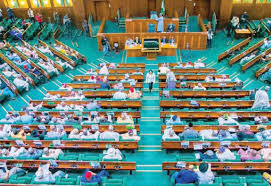The Rise and Fall of the Labour Party: A Tale of Internal Feuds and Mass Exodus
In the 2023 Nigerian presidential election, the Labour Party (LP) rose to prominence, defying expectations and sending shockwaves across the country’s political landscape.
Led by Peter Obi, the party achieved unprecedented success, defeating President Bola Tinubu in his home state of Lagos and breaking the Peoples Democratic Party (PDP)’s 24-year stranglehold on the South East.
However, the party’s meteoric rise has been followed by a rapid decline, triggered by internal feuds and a mass exodus of allies and lieutenants.
The Labour Party’s remarkable performance in the 2023 election was nothing short of astonishing. With a relatively unknown party apparatus and limited resources, Peter Obi’s campaign resonated with millions of Nigerians, particularly the youth.
The party’s ability to tap into the widespread discontent with the traditional parties and its message of change and renewal propelled it to the forefront of national politics.
However, the party’s success was short-lived. As the euphoria of the election result dissipated, internal cracks began to appear.
Feuds between key stakeholders and power struggles within the party’s leadership soon came to the fore, causing a rift among its supporters.
The exit of allies and lieutenants, who had been instrumental in the party’s success, has been a significant blow to the LP.
The mass exodus has not only depleted the party’s leadership but also eroded its grassroots support.
Many of those who left the party have cited internal politics and the lack of a clear direction as reasons for their departure.
The loss of these key figures has weakened the party’s ability to maintain its momentum and has raised questions about its future viability.
The Labour Party’s decline is a cautionary tale of the fragility of political success in Nigeria. The party’s rise was built on the back of a charismatic leader and a compelling message, but it lacked the institutional foundation to sustain its growth.
As the party struggles to come to terms with its internal problems, it remains to be seen whether it can recover from the loss of its key stakeholders and regain its footing in Nigerian politics.
The decline of the Labour Party also raises broader questions about the state of Nigeria’s democracy. The country’s political landscape is characterized by a high degree of fluidity, with parties and alliances constantly shifting.
The LP’s experience highlights the challenges faced by new parties in establishing themselves in this environment and the need for robust internal structures to support their growth.
As the Labour Party navigates its internal crisis, it must confront the hard realities of Nigerian politics. To survive, the party will need to rebuild its leadership, strengthen its internal democracy, and reconnect with its grassroots supporters.
The fate of the Labour Party will be closely watched, not only by its supporters but also by those who see it as a potential force for change in Nigerian politics.





[…] The Rise and Fall of the Labour Party: A Tale of Internal Feuds and Mass Exodus […]